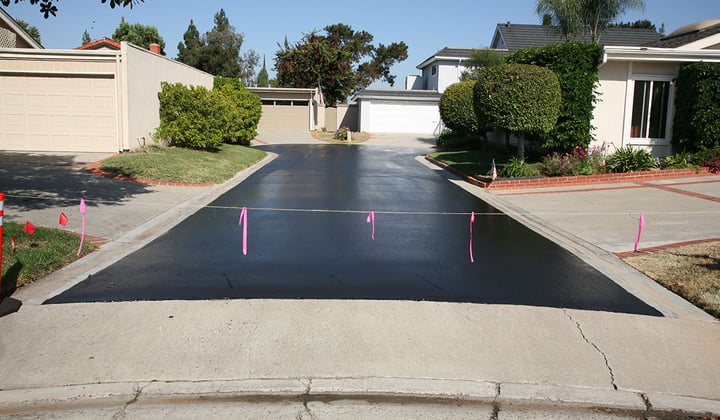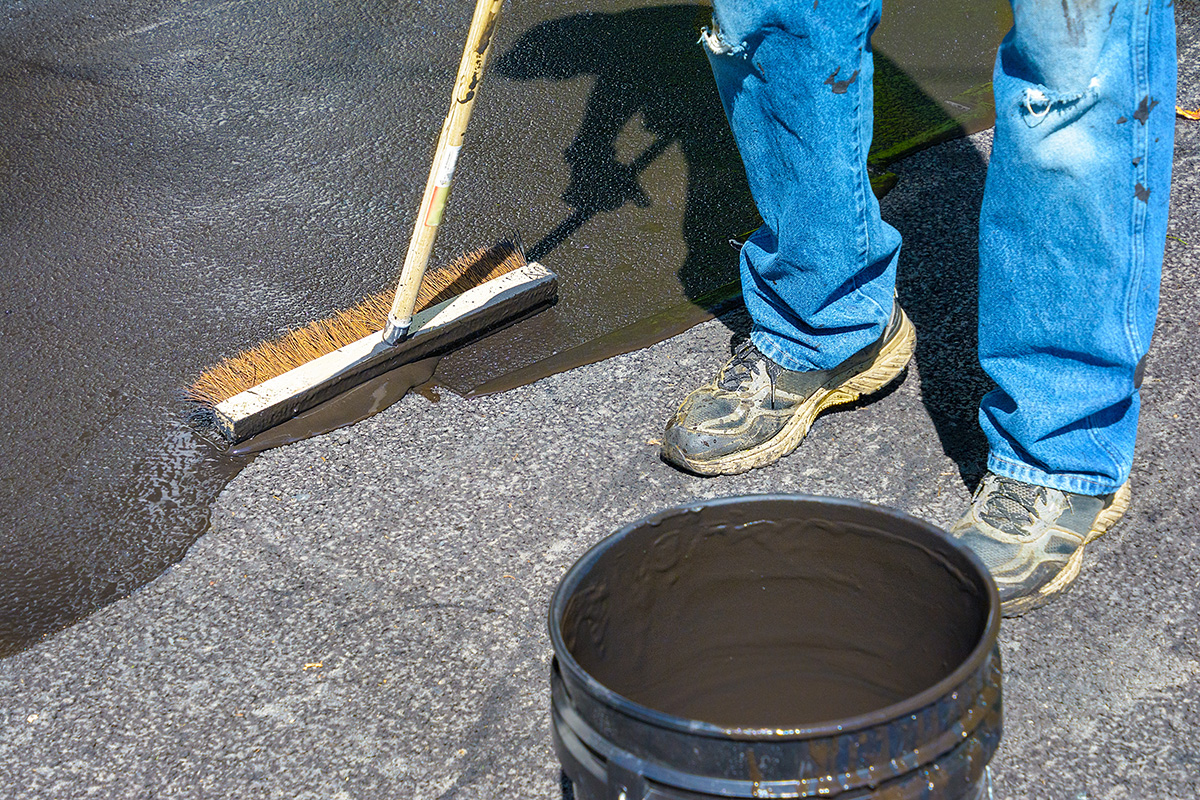Boost Durability with Cold Mix Asphalt: Professional Sealing Solutions
Boost Durability with Cold Mix Asphalt: Professional Sealing Solutions
Blog Article
Cold Mix Asphalt Vs. Hot Mix Asphalt: Which Is Right for You?

Structure Differences
Cold mix and hot mix asphalts differ substantially in their structure, with distinct features that affect their efficiency and applications. Cold mix asphalt is created by emulsifying the asphalt binder with water and an emulsifying agent before blending it with aggregate. This technique allows for the asphalt to be practical at lower temperatures, making it optimal for short-lived repair work and for use in cooler weather. Hot mix asphalt, on the other hand, is produced at high temperature levels, commonly between 300-350 ° F, which assists to attain much better compaction and a more long lasting last product. The hot mix asphalt manufacturing procedure includes heating the accumulation and asphalt binder individually prior to combining them at the asphalt plant.
Additionally, cold mix asphalt has a tendency to be much less thick and extra versatile than hot mix asphalt. This adaptability makes it much better suited for areas with higher levels of movement, such as driveways or roads with rush hour. On the other hand, hot mix asphalt is understood for its high sturdiness and resistance to rutting and breaking, making it a recommended selection for freeways and high-traffic roads where longevity is important.
Installment Process Differences
The process of mounting cold mix and warm mix asphalt exhibits significant variances in their requirements and treatments. Cold mix asphalt, being a more versatile material, can be used directly from the bag or container onto the fracture or harmed location. It requires marginal preparation work, such as cleaning the area and compacting the cold mix with hand tools. This makes it a hassle-free choice for short-lived and quick repairs. In contrast, hot mix asphalt demands a much more elaborate installation procedure. It includes warming the combination to high temperatures prior to laying it down on an effectively ready base. The preparation includes compacting the base, applying a tack layer, and utilizing hefty equipment like pavers and compactors for a resilient and smooth finish. As a result of the home heating needs, warm mix asphalt installations are commonly performed by experts with customized equipment, making sure a more permanent and structurally sound outcome.
Longevity and Durability Variables
When considering asphalt alternatives, toughness and durability are essential factors to review for long lasting sidewalk efficiency,. Hot mix asphalt (HMA) is understood for its phenomenal longevity and longevity. The heats during the mixing and laying process enable much better compaction, resulting in a denser and stronger pavement structure. This brings about HMA being a lot more resistant to hefty traffic tons, rough weather, and the results old contrasted to chilly mix asphalt (CMA)
In regards to longevity, HMA commonly outmatches CMA as a result of its exceptional toughness and resistance buildings. HMA pavements have a longer life span, requiring much less regular fixings and maintenance, which can equate to cost financial savings in the future. Furthermore, HMA pavements are more conveniently personalized to meet particular task demands, even more enhancing their resilience.
Expense Factors To Consider
Thinking about the economic ramifications is a critical aspect when examining the selection between hot mix asphalt (HMA) and cool mix asphalt (CMA) for pavement projects. While the preliminary price of hot mix asphalt is usually greater than that of cool mix asphalt, HMA frequently supplies an extra cost-effective service in the lengthy run due to its premium resilience and durability.
Along with product expenses, it's vital to think about the expenses associated with installation and upkeep when comparing HMA and CMA. HMA typically calls for customized equipment and skilled labor for correct setup, which can impact overall project costs. Alternatively, CMA is simpler to collaborate with and can frequently be used using less complex strategies, possibly decreasing installment expenses. Eventually, the decision between HMA and CMA must think about not simply the first price but also the long-lasting monetary ramifications to establish the most cost-efficient alternative for the certain sidewalk job.
Environmental Effect Comparison
Comparison of the ecological influences between hot mix asphalt (HMA) and cool mix asphalt (CMA) reveals unique distinctions in sustainability techniques. HMA manufacturing needs high temperature levels, leading to enhanced power intake and greenhouse gas exhausts.
In addition, making use of CMA usually entails reusing existing asphalt pavement, promoting source conservation and decreasing the amount of waste sent out to land fills. This reusing aspect even asphalt repair more enhances the sustainability of CMA contrasted to HMA. Overall, when taking into consideration the ecological impact, CMA becomes a more ecologically sustainable selection because of its lower power demands, reduced emissions, and the capacity for recycling existing materials. By selecting CMA over HMA, roadway building projects can add positively to environmental preservation efforts.
Final Thought
Finally, the selection in between cold mix asphalt (CMA) and hot mix asphalt (HMA) relies on different aspects such as composition, installation procedure, durability, durability, expense, and ecological impact. asphalt repair. While CMA supplies a quick and economical remedy for small repair services, HMA makes certain exceptional sturdiness and long life for hefty website traffic areas. Take into consideration these aspects thoroughly to identify which sort of asphalt is the right selection for your paving requires

Thinking about the monetary effects is a vital facet when reviewing the selection in between warm mix asphalt (HMA) and cold mix asphalt (CMA) for pavement tasks. While the preliminary cost of hot mix asphalt is normally greater than that of cold mix asphalt, HMA typically gives a more cost-efficient remedy in the long run due to its remarkable durability and longevity. asphalt repair.Comparison of the ecological influences in between hot mix asphalt (HMA) and cool mix asphalt (CMA) discloses unique differences in sustainability methods.In final thought, the option between cool mix asphalt (CMA) and hot mix asphalt (HMA) depends on different variables such as structure, installation procedure, toughness, durability, price, and ecological impact
Report this page